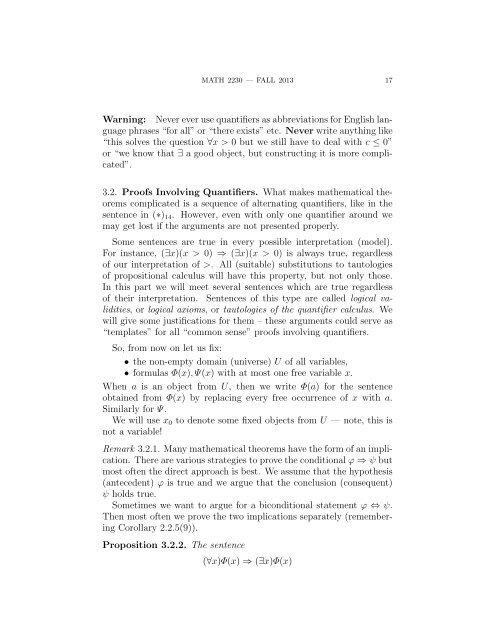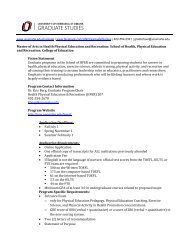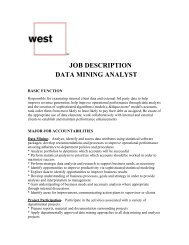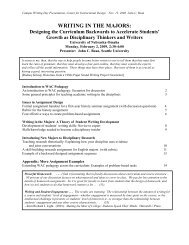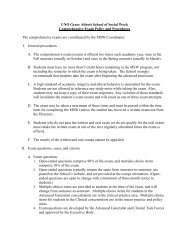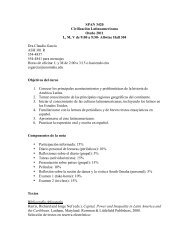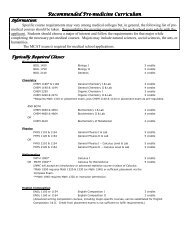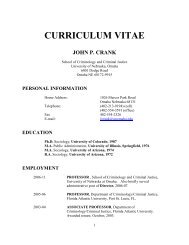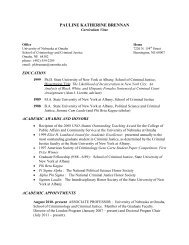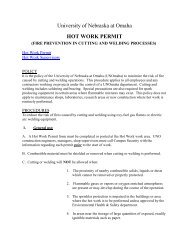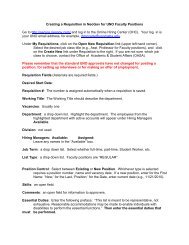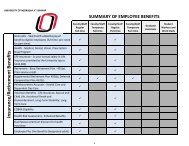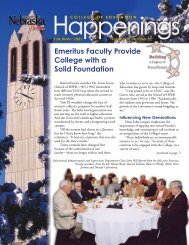Quantifiers - University of Nebraska Omaha
Quantifiers - University of Nebraska Omaha
Quantifiers - University of Nebraska Omaha
You also want an ePaper? Increase the reach of your titles
YUMPU automatically turns print PDFs into web optimized ePapers that Google loves.
MATH 2230 — FALL 2013 17<br />
Warning: Never ever use quantifiers as abbreviations for English language<br />
phrases “for all” or “there exists” etc. Never write anything like<br />
“this solves the question 8x >0butwestillhavetodealwithc apple 0”<br />
or “we know that 9 a good object, but constructing it is more complicated”.<br />
3.2. Pro<strong>of</strong>s Involving <strong>Quantifiers</strong>. What makes mathematical theorems<br />
complicated is a sequence <strong>of</strong> alternating quantifiers, like in the<br />
sentence in (⇤) 14 . However, even with only one quantifier around we<br />
may get lost if the arguments are not presented properly.<br />
Some sentences are true in every possible interpretation (model).<br />
For instance, (9x)(x >0) ) (9x)(x >0) is always true, regardless<br />
<strong>of</strong> our interpretation <strong>of</strong> >. All (suitable) substitutions to tautologies<br />
<strong>of</strong> propositional calculus will have this property, but not only those.<br />
In this part we will meet several sentences which are true regardless<br />
<strong>of</strong> their interpretation. Sentences <strong>of</strong> this type are called logical validities,<br />
orlogical axioms, ortautologies <strong>of</strong> the quantifier calculus. We<br />
will give some justifications for them – these arguments could serve as<br />
“templates” for all “common sense” pro<strong>of</strong>s involving quantifiers.<br />
So, from now on let us fix:<br />
• the non-empty domain (universe) U <strong>of</strong> all variables,<br />
• formulas (x), (x) withatmostonefreevariablex.<br />
When a is an object from U, then we write (a) forthesentence<br />
obtained from (x) byreplacingeveryfreeoccurrence<strong>of</strong>x with a.<br />
Similarly for .<br />
We will use x 0 to denote some fixed objects from U —note,thisis<br />
not a variable!<br />
Remark 3.2.1. Many mathematical theorems have the form <strong>of</strong> an implication.<br />
There are various strategies to prove the conditional ' ) but<br />
most <strong>of</strong>ten the direct approach is best. We assume that the hypothesis<br />
(antecedent) ' is true and we argue that the conclusion (consequent)<br />
holds true.<br />
Sometimes we want to argue for a biconditional statement ' , .<br />
Then most <strong>of</strong>ten we prove the two implications separately (remembering<br />
Corollary 2.2.5(9)).<br />
Proposition 3.2.2. The sentence<br />
(8x) (x) ) (9x) (x)


